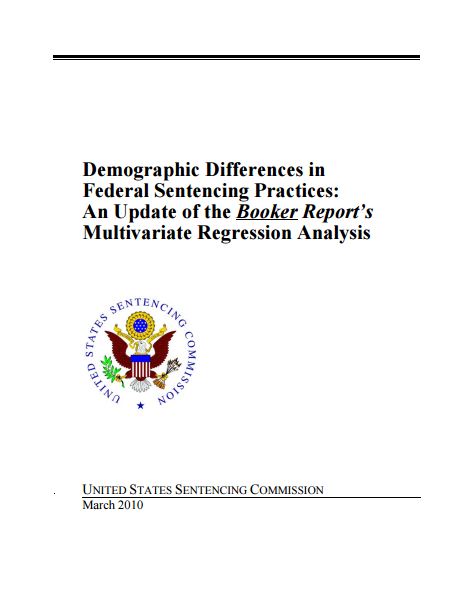Summary

This report focused on three separate time periods which together spanned the time between May 1, 2003, and September 30, 2009. The Commission found a correlation between the length of sentences imposed on some groups of offenders and the demographic characteristics of those offenders. These differences were not present in all time periods under study and differed in magnitude in the time periods in which they were observed. (March 2010)
Key Findings
Based on the Commission's analysis, and after controlling for a variety of factors relevant to sentencing, the following observations were made:
- Black male offenders received longer sentences than white male offenders. The differences in sentence length have increased steadily since Booker.
- Female offenders of all races received shorter sentences than male offenders. The differences in sentence length fluctuated at different rates in the time periods studied for white females, black females, Hispanic females, and “other” female offenders (such as those of Native American, Alaskan Native, and Asian or Pacific Islander origin).
- Non-citizen offenders received longer sentences than offenders who were U.S. citizens. The differences in sentence length have increased steadily since Booker.
- Offenders with some college education received shorter sentences than offenders with no college education. The differences in sentence length have remained relatively stable across the time periods studied.
- The data were inconsistent as to the association between an offender’s age and the length of sentence imposed.
